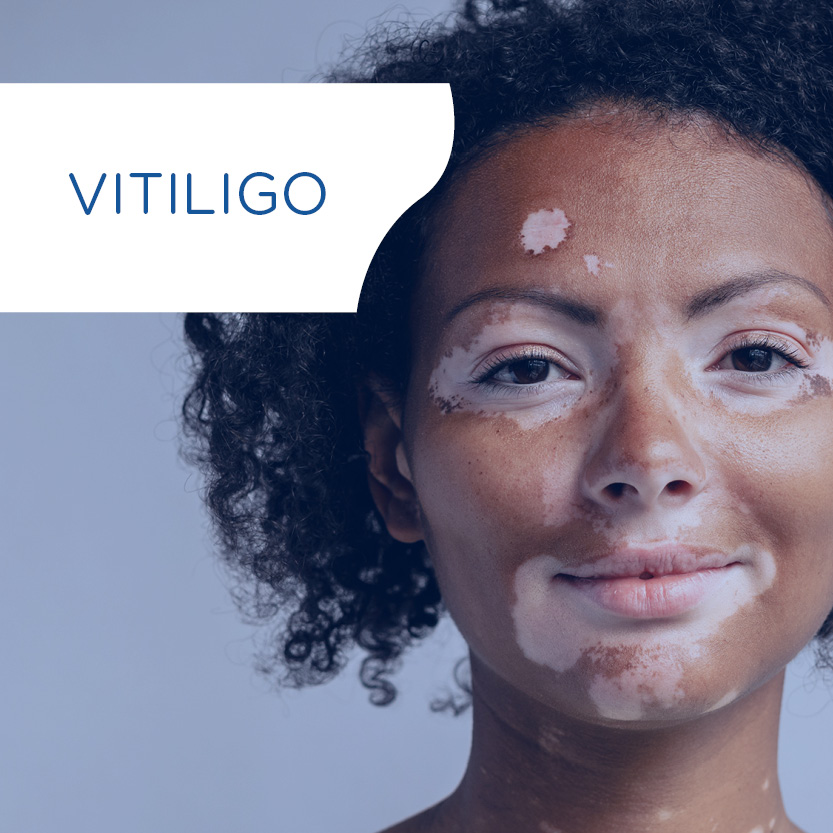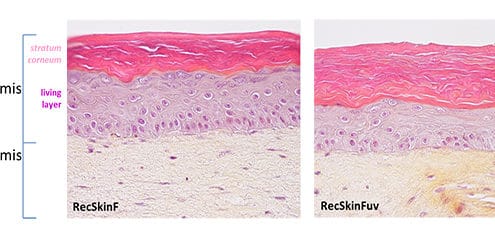
in vitro modeling of skin photoaging: development of evaluation tools for cosmetics
Cosmetique, Skin ageing, Vieillissement cutanéDevelopment of in vitro models skin for better understand the modifications during photo-aging induced by repetitive UV exposure.
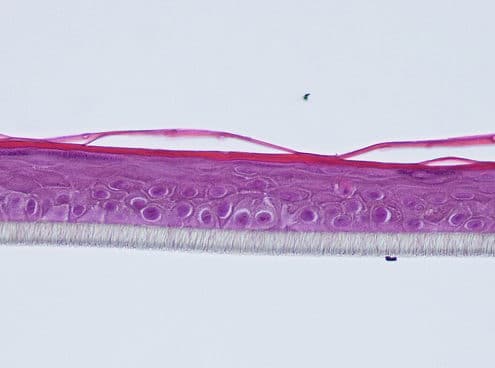
Development of a new model of reconstructed aged skin useful to study antiageing effects of cosmetic compounds
Cell and tissue engineering, Ingénierie cellulaire et tissulaire, Skin ageing, Vieillissement cutanéThe development of new anti-ageing products needs performant in vitro models mimicking morphological changes and physiological modifications appearing during skin ageing. In order to have access to a simple model mimicking the epidermis ageing but in relation with a normal dermis, we have developed a new in vitro model of reconstructed skin comprising an aged epidermis covering a reconstructed dermis built with collagen and normal (young) fibroblasts.
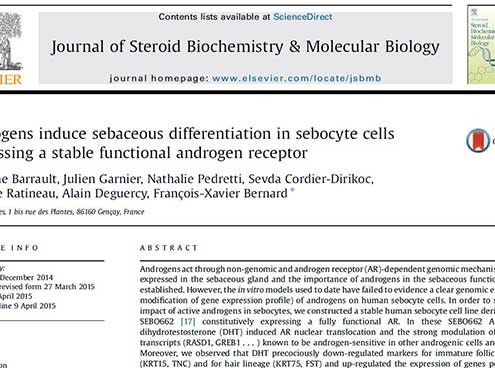
Androgens induce sebaceous differentiation in sebocyte cells expressing a stable functional androgen receptor
Ingénierie cellulaire et tissulaire, Vieillissement cutanéIn order to study the impact of active androgens in sebocytes, we constructed a stable human sebocyte cell line derived from SEBO662 [17] constitutively expressing a fully functional AR. In these SEBO662 AR+ cells, dihydrotestosterone (DHT) induced AR nuclear translocation and the strong modulation of a set of transcripts (RASD1, GREB1...) known to be androgen-sensitive in other androgenic cells and tissues.
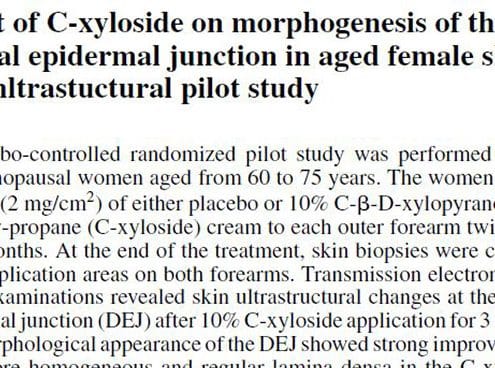
Effect of C-xyloside on morphogenesis of the dermal epidermal junction in aged female skin. An ultrastuctural pilot study
Cosmetique, Cosmétique, Skin ageing, Vieillissement cutanéThese data suggest that topical C-xyloside application in vivo may be efficient in inducing a better dermal-epidermal cohesion when such a junction is deficient, as is the case in photo-aged or chronologically aged skin. Moreover, a statistically significant increase in CD44 expression was noted in the epidermis of C-xyloside-treated compared to the placebo treated skin areas.
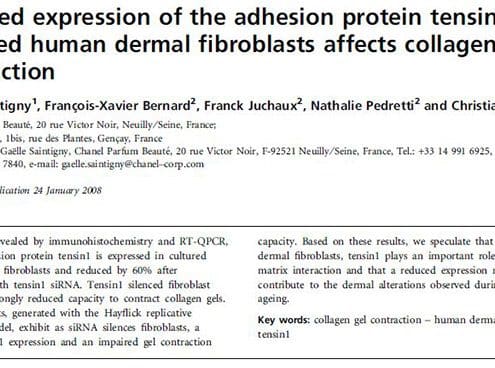
Reduced expression of the adhesion protein tensin1 in cultured human dermal fibroblasts affects collagen gel contraction
Cosmetique, Cosmétique, Skin ageing, Vieillissement cutanétensin1 plays an important role in cell-matrix interaction and that a reduced expression might contribute to the dermal alterations observed during skin ageing



